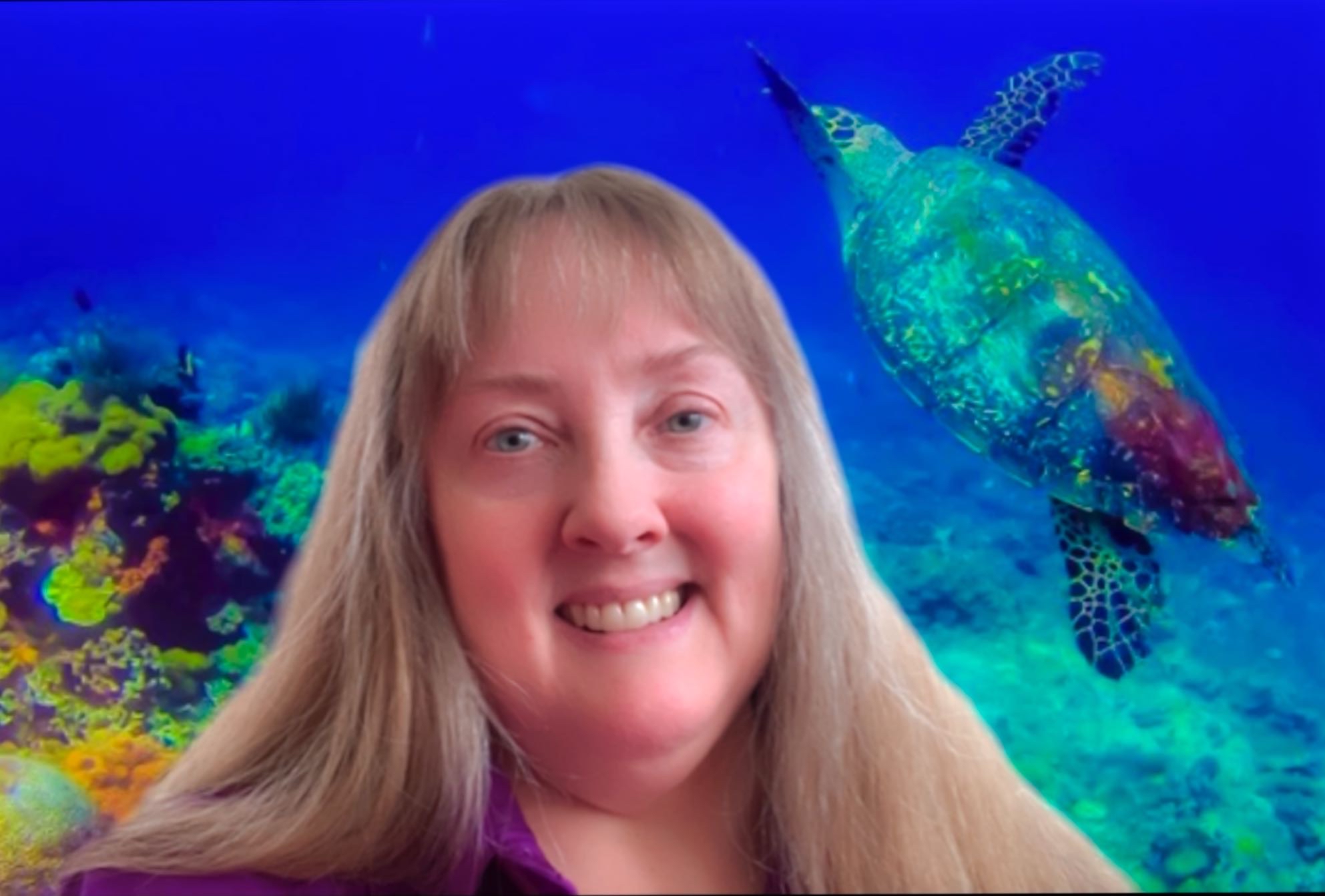Get to Know Juley Fulcher
Public Citizen News / September-October 2021
By Sara Kate Baudhuin

This article appeared in the September/October 2021 edition of Public Citizen News. Download the full edition here.
If you’ve been on a video call with Juley Fulcher at some point during her 14 months at Public Citizen, you may have noticed the underwater photo of a sea turtle that she uses as her digital background. What people might not know, however, is that Fulcher took this photo herself on one of her many scuba diving adventures.
When asked to describe herself in a word, Fulcher pauses contemplatively before settling on two: “political egghead” and “water person.” She’s been scuba diving around the world for over 15 years which has led to many adventures, perhaps most notably an underwater pumpkin carving contest.
For Fulcher, scuba diving is a form of rejuvenation and intentional rest from the intensity of her advocacy work. “That’s the beauty of diving,” she says. “You get to sink down into that silent world, and everything is somewhere else.”
After earning her master’s degree and doctorate from Johns Hopkins and her law degree from Georgetown, Fulcher entered the field of social justice policy, where she has now worked for over 25 years. In May 2020, Fulcher joined Public Citizen’s Congress Watch team as worker health and safety advocate and coordinator of the National Heat Stress Campaign.
How did you find your way to Public Citizen?
Fulcher: I spent 25 years working on violence against women, which was my expertise, but I ended up taking a couple of years off to care for my elderly mother. When I reentered the workforce, I decided to go in a different direction. Working at Public Citizen seemed an interesting way to keep doing what I love in terms of policy that’s helping people.
While navigating that transition, what drew you to workers’ safety advocacy?
Fulcher: It’s similar in that people’s lives and safety are on the line and there are strong power dynamics at play. Many workers lack power in the situations they’re in. They also don’t have much recourse—the ability to get the justice and safety that they need—so I was happy to jump in and do that.
Are there any ways in which COVID has created unexpected windows of opportunity for your work?
Fulcher: Sometimes there are situations where you can point to something and say, ‘you see, this is why you need to care’ and COVID did that for us. All these essential workers that often go unnoticed are also the crucial people keeping the country running. And suddenly everybody paid attention to them and thought about what their work was like. They saw them as the heroes and the critical part of our infrastructure that they are and paid attention to their working conditions.
How has your advocacy work shaped you as a person?
Fulcher: I never grew up interested in politics at all. I never took a political science course nor intended to end up doing this work. I started working in a system trying to help victims of domestic violence and you immediately figure out the system is broken so you start trying to fix it. But the more you get into it, you realize all the systems are broken.
It’s not easy, but throughout my career, I’ve had many victories and feel that I’ve made changes that have affected people’s lives dramatically. So my whole way of thinking has shifted; I feel much more powerful doing this work, and I feel like I can make a change.